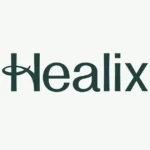Deep and long-lasting political issues are a reality across the Middle East, and they aren’t going anywhere. In fact, our 2024 Risk Radar: Dare To Prepare report, a survey of 500 travel and risk managers across eight business sectors, identified Geopolitical Tensions as the biggest risk for the Middle East & North Africa (MENA) in the next 12-months (53%). These results were collected before the initial Hamas assault on 6th October, the fallout of which we have already seen is causing wide-ranging implications for civilians in Israel, the Palestinian territories, and the wider Middle East.
Geopolitical tensions between rival MENA states can lead to obstacles to effective business practice at short notice. Sanctions and restrictions on imports and exports can be imposed without significant forewarning, while conflicts and political instability can result in price spikes in commodities. However, the most significant threat is to the health and safety of employees working for international firms on-the-ground, which have a responsibility to do whatever they can to protect staff. This can be extremely difficult to navigate, especially for businesses that do not have experience in extracting staff from conflict scenarios.
While an initial four-day ceasefire between the Israeli government and Hamas has taken place, forecasts for a longer-term truce remain pessimistic. The responsibility firms have to protect and evacuate their employees will likely remain for some time to come. With this in mind, this article shares advice on how to protect foreign nationals working in and close to Israel – no matter what sector they operate in.
Ensure your evacuation plan is up-to-date
As a first step, security and risk managers should ensure existing evacuation plans are up-to-date and remain actionable. If your company does not have an evacuation plan, you should engage your international assistance provider in co-ordination with your Crisis Management Team (CMT) to authorise the development of an evacuation plan, encompassing all personnel based in Israel and the Middle East region, in case of any future deterioration in the security risk environment. The CMT should involve multiple internal stakeholders, including human resources, security, legal and operational personnel.
Your evacuation plan needs to be reviewed regularly, to ensure it remains actionable and commensurate with the evolving security environment. Remain aware of potential visa restrictions at receiving destinations for evacuations, and keep in mind the nationalities of your employees when reviewing these restrictions. Reconfirm the adequacy of pre-identified International Safe Havens (ISH) should these become necessary.
As part of the evacuation planning process, organisations should identify internal triggers in line with the company’s risk tolerance that would signal that the situation is improving or deteriorating enough to warrant a change to their evacuation posture.
Ensure communication with personnel is frequent and effective
After your evacuation plan is in place, and there is an established process to review it regularly, ensure that any communication with employees is frequent and effective. Consider the channels you are using for each of your audience groups. What will your teams have access to? How will you reach them if local internet services fail? Is there a back-up if your chosen method isn’t possible. Prioritisation of important information is critical given the volume of information being disseminated by local media and local authorities, alongside internally produced company updates. Ensure that essential directives are communicated separately from more routine updates – particularly relating to government directives that are being introduced, such as legislation or potential curfews.
Maintain close embassy relations in Israel
As a basic precaution, ensure that employees are enrolled on any travel security information programmes led by embassies of their respective countries. Ensure that all staff maintain up-to-date travel documents and that they are in communication with their diplomatic representations.
Stay abreast of developments and be aware of an alternative Point of Contact (PoCs) should operations at the diplomatic facilities be impacted. Government directives should be relayed accurately and efficiently to employees, including details of movement restrictions, in case of further violence. Consider using instant messaging groups to disseminate information to employees in a timely manner.
Retain/establish relations with local security companies and ground transport providers
Security and risk managers should develop relations with accredited security companies and/or ground transport providers. Ideally, this should be done in line with the evacuation plan. Should there be a rapid deterioration in the security environment, such assets are likely to be inundated with requests for assistance and response times may be slow.
A contract should be drawn up, which may involve a retainer fee being paid to guarantee rapid deployment if required in a time-sensitive situation. Ground support providers should be tested on routine ground moves to build relationships and understand their abilities and limitations. Assets such as these may also be able to provide basic intelligence updates.
Ensure that employees have the necessary provisions to stand fast for an extended period
In the event of a sudden deterioration of the risk environment, an accredited hotel may be used as a stand-fast location. Ensure stand-fast locations have been reliably evaluated beforehand.
Ensure that personnel have reviewed official Israeli advice for what to do in the event of a siren sounding at www.idf.il/en/minisites/regionalcommands/home-front-command/how-to-act-during-an-alert/ and check that they have access to essential supplies including medication and non-perishable food.
As the conflict continues, so do the lives of those living and working in the region. And a proportion of those working and living in Israel and the Palestinian territories will be foreign nationals working in local hubs for international firms. As an employer it is your responsibility and duty of care to assess, prepare for and protect your people, wherever they operate.

Jacob Lees Weiss
Jacob Lees Weiss is an analyst specialising in the MENA region at Healix International and HX global. He holds an MA in Contemporary Arabic Studies from the Autonomous University of Barcelona. Prior to working at Healix, he spent time volunteering for NGOs and studying in Algeria and Egypt.










